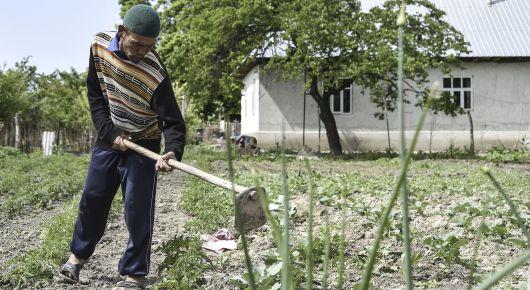FAO workshop focuses on stronger land markets in Central Asia

The basis of agricultural production is land, and farmers need a properly functioning land market in order to make the most out of this precious asset. To this end, FAO convened Central Asian representatives of all related spheres in Bishkek to discuss the potentials of developing their national agricultural land markets.
At the two-day workshop, participants will explore opportunities for implementing land management instruments, as well as policy options for an active land policy to develop agricultural land markets.
Well-managed agricultural land markets allow for transfers of land to more efficient users and producers while also providing access to land to new entrants, such as young farmers. In Central Asia, FAO is actively supporting improved land markets in Kazakhstan, Kyrgyzstan, and Uzbekistan. The work carried out and planned in those countries will also be presented in Bishkek.
“Well-functioning land markets can facilitate investments in rural areas and subsequently support rural growth,” explained Morten Hartvigsen, FAO land tenure officer. “Agricultural land markets can become a means for targeted support to specific groups, such as young farmers, through the provision of access to land.”
Despite their shared history as former members of the Soviet Union, Central Asian countries went on different paths during the land reforms in the 1990s – some countries allowed private ownership of land, while others allocated use rights to farmers to agricultural land that remained state property. Although structures vary, one thing is common; farmers and national economies would benefit everywhere from stronger land markets.
Through the specific sessions of the FAO workshop, participants will learn about the land administration systems in each country and their overall experience with land market development. FAO experts will present the Voluntary Guidelines on the Responsible Governance of Tenure (VGGT) and further policy recommendations to promote agricultural land market development based on regional good experiences.
“Weak land markets hamper agriculture and rural development, leaving a part of the agriculture sector’s growth potential unutilized,” Hartvigsen added.
Recommendations will help address structural problems, high levels of informality (including informal land transactions and unresolved inheritance), inconsistency between property titles and the reality on the ground, and many other issues.
FAO has decades of experience in land management instruments, such as land consolidation, land banking, facilitation of lease, and active use of state-owned agricultural land, which can be employed to facilitate transfers of land and thus support the development of agricultural land markets. The workshop will also build on the findings of an FAO project implemented jointly with the National Union of Water Users Associations FAO’s experience in the Kyrgyz Republic.
27 April 2022, Bishkek, Kyrgyzstan
